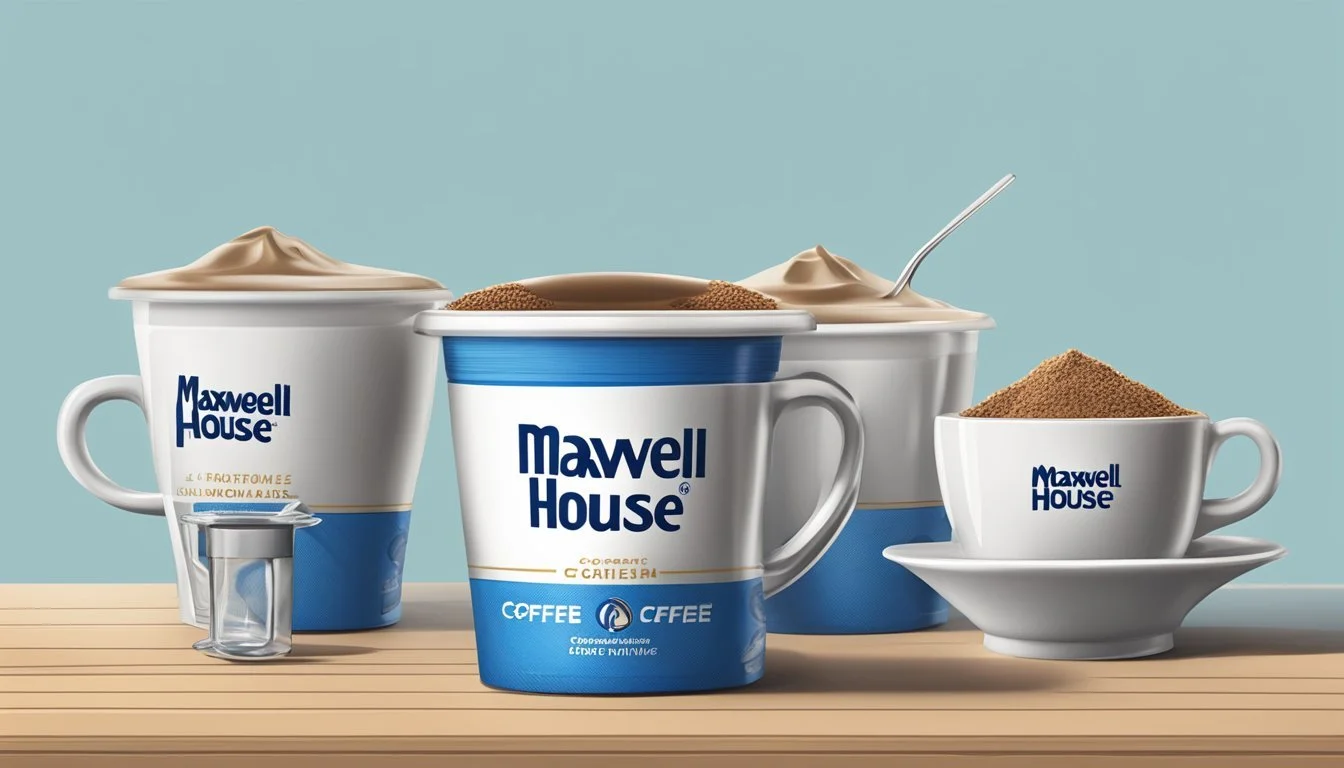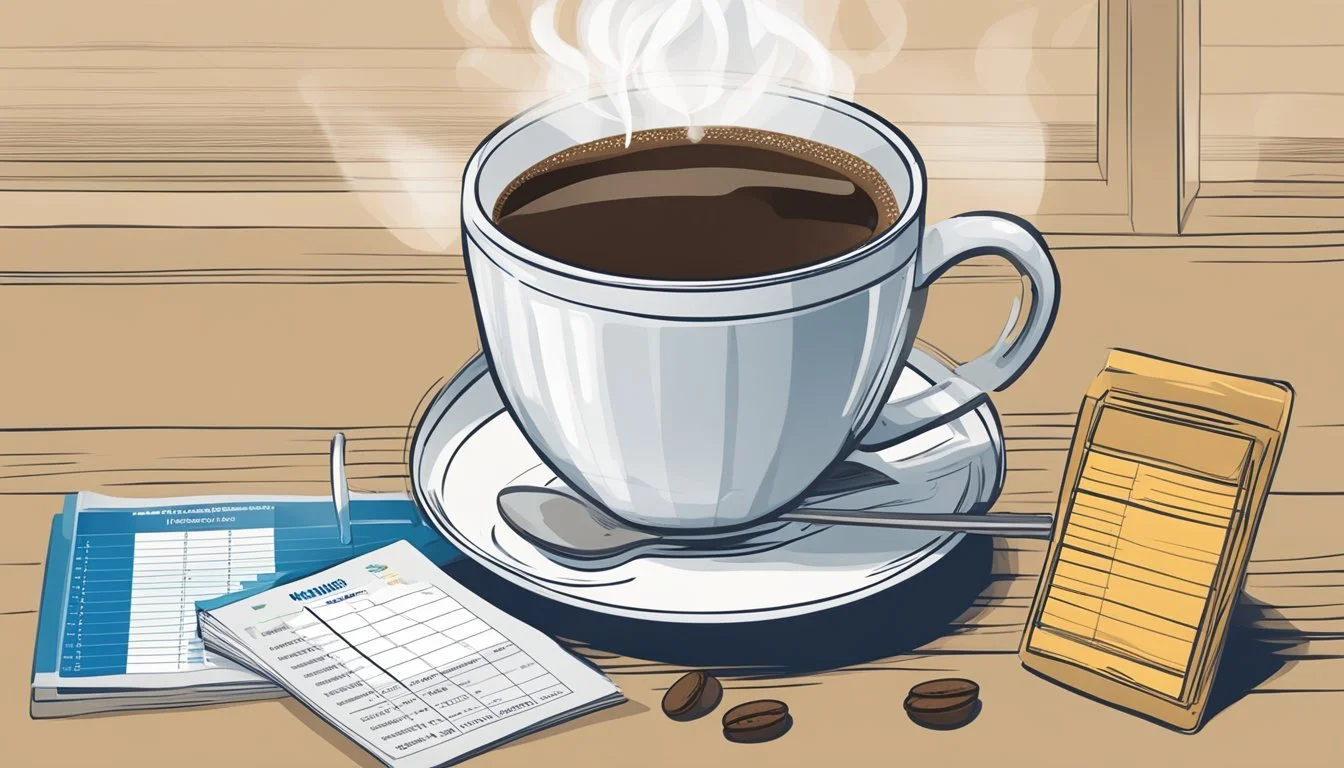How Many Cups of Maxwell House Coffee Per Day is Too Much?
Understanding Daily Limits
Determining the appropriate amount of coffee consumption is a topic of significant interest among both health professionals and consumers. When it comes to popular coffee brands like Maxwell House, the question often arises as to how many cups are considered safe or beneficial. Various studies have suggested that moderate coffee consumption can have health benefits, yet there is a threshold where the intake of caffeine can lead to negative effects. For Maxwell House coffee, which averages around 112 mg of caffeine per 8 oz cup, the consideration of daily limits is crucial to avoid adverse health outcomes.
It is generally recommended that adults limit their caffeine intake to about 400 mg per day, which equates to roughly three to four 8 oz cups of Maxwell House coffee. However, individual tolerance to caffeine can vary significantly, influenced by factors such as age, body weight, and overall sensitivity to caffeine. While moderate coffee consumption can fit into a healthy diet, excessive intake may lead to increased heart disease risk, sleep disturbances, and other health issues.
In analyzing the safe consumption levels of Maxwell House coffee specifically, it is essential to consider both the caffeine content per serving and the broader context of an individual's total daily caffeine intake from all sources. The balance between enjoying the beloved ritual of coffee drinking and maintaining one's health is a fine line that requires attention to personal limits and the body's responses to caffeine.
Understanding Coffee and Caffeine
Coffee is a beloved beverage enjoyed for its flavor and stimulating effects, largely attributed to its caffeine content. This stimulant can impact health and energy levels differently depending on individual sensitivity and consumption patterns.
Caffeine Content in Coffee
The amount of caffeine in coffee can vary widely based on the type of coffee bean, roast level, and preparation method. In general, a standard 8-ounce cup of coffee contains around 95 milligrams of caffeine. However, the caffeine content in a cup of Maxwell House Original Roast coffee, for example, is typically around 112mg in an 8 oz. cup, or 14mg per fluid ounce. Understanding caffeine levels is crucial for managing intake and avoiding potential side effects such as sleep disruption or increased heart rate.
Maxwell House Coffee Varieties
Maxwell House offers various coffee blends, each with differing caffeine levels. The Original Roast is notable for providing a moderate caffeine kick of approximately 112mg per 8 oz. cup. Other varieties such as the Dark Roast may contain more caffeine, while options like the Half Caff cater to those looking for lower caffeine content. Here's a quick breakdown:
Original Roast: ~14mg of caffeine per fluid ounce
Dark Roast: Slightly higher caffeine content than Original Roast
Half Caff: Reduced caffeine alternative, ideal for those monitoring their caffeine intake
Decaf vs. Regular Coffee
While decaf coffee is not completely caffeine-free, it contains substantially less caffeine than regular coffee. The FDA requires that decaf coffee has 97% of its caffeine removed, which typically results in about 2-5 milligrams per 8-ounce cup. Regular coffee drinkers may switch to decaf to mitigate caffeine sensitivity issues or as part of a health-oriented lifestyle choice. However, for individuals who rely on caffeine for its stimulatory effects, such as improved focus and energy, regular coffee remains the go-to choice.
Health Impact of Coffee Consumption
Consuming coffee, including popular brands like Maxwell House, has been associated with both potential health benefits and risks. Research suggests moderate coffee consumption can contribute positively to health, yet excessive intake may increase the likelihood of adverse effects.
Benefits and Risks of Drinking Coffee
Moderate coffee consumption, defined as three to five cups per day, can offer numerous health benefits. A study referenced by the American Journal of Clinical Nutrition has shown that coffee, rich in antioxidants, can lower the risk of diseases such as type 2 diabetes and liver disease. It is important to note that these benefits pertain to regular black coffee rather than high-calorie, sugar-laden coffee beverages.
On the other hand, excessive coffee drinking, particularly more than six cups per day, may pose risks including an increased chance of developing cardiovascular disease by up to 22%. Other potential risks associated with high coffee intake include high blood pressure, anxiety, and an elevated risk of stroke.
Coffee, Caffeine, and Diseases
Caffeine, a central ingredient in coffee, has been the subject of numerous studies examining its relationship with various diseases. While coffee's antioxidants may offer protective effects, caffeine intake needs to be monitored. High consumption of caffeine has been linked to increased heart disease risk. However, its impact on cancer is less definitive, with research providing mixed results. It's also noted that ground coffee contains compounds that could have different health implications compared to other forms of coffee or caffeine consumption.
Caffeine and Special Populations
Special populations such as pregnant individuals or children and teenagers should exercise caution with caffeine:
Pregnancy: It is advised to limit coffee intake as it may affect fetal development, with most guidelines recommending less than 200 milligrams of caffeine per day, equivalent to about one 8-ounce cup of coffee.
Children and Teenagers: This group is more sensitive to caffeine's effects, thus a conservative approach to caffeine is recommended to prevent effects on development, with some health authorities advising against caffeine consumption for children entirely.
For adults, the Food and Drug Administration suggests a maximum daily caffeine intake of 400 milligrams, about four 8-ounce cups of coffee. This threshold is intended to prevent adverse health outcomes, though individual tolerance to caffeine can vary.
Daily Coffee Intake Recommendations
Understanding the optimal amount of Maxwell House coffee a person can consume daily revolves around adhering to guidelines set by health organizations, recognizing factors that affect caffeine's impact on the body, and being aware of individual caffeine sensitivity.
Guidelines for Safe Coffee Consumption
The Food and Drug Administration (FDA) advises that a typical adult can safely consume up to 400 milligrams (mg) of caffeine per day, equivalent to about four or five cups of coffee. However, it’s important to note that one 12-fluid-ounce serving of Maxwell House coffee contains approximately 100 to 160 milligrams of caffeine. Therefore, a maximum of two to four servings per day would align with the FDA's guidance.
USDA guidelines: Emphasizes that coffee intake should be part of a balanced diet that limits added sugars.
Mayo Clinic recommendations: Echoes that up to 400 mg of caffeine per day is safe for most healthy adults.
Impact of Coffee on Daily Life
Drinking coffee affects hydration due to its diuretic properties. Ensuring adequate water intake is critical to balance this effect. Excessive caffeine can lead to sleep disturbances, increased heart rate, and feelings of anxiety. Consuming coffee along with food can mitigate some of these effects.
Headaches and sleep: Studies suggest that high caffeine intake can cause headaches and disrupt sleep patterns.
Managing Caffeine Sensitivity
Individuals react differently to caffeine, with some experiencing symptoms like headaches or sleep disturbances even at low levels of intake. Recognizing one's sensitivity to caffeine is crucial and can be managed by:
Adjusting coffee intake: Reduce the number of cups if experiencing adverse effects.
Considering other sources of caffeine like tea, which generally has lower caffeine content compared to coffee.
Coffee Preparation and Serving Sizes
In determining how much Maxwell House coffee is too much, one must consider brewing methods and how they affect taste, as well as the precise coffee-to-water ratio that defines a serving size.
Brewing Methods and Their Influence
Different brewing methods can influence the flavor profile and caffeine content of coffee significantly. French press coffee, for instance, typically results in a richer and often more bitter taste than drip coffee because the coffee grounds are in direct contact with the water for a longer period. Conversely, cold brew, which steeps coffee grounds in cold water over several hours, produces a smoother, less acidic beverage, often served as iced coffee.
When it comes to preparation with Maxwell House coffees, such as their Original Roast or Master Blend, the brewing method can also determine whether additional flavor enhancers like cream or sweeteners are needed. Some individuals may find the need for milk or cream to mitigate bitterness or add desired sweetness and texture, influencing the caloric content of the serving.
Measuring the Perfect Coffee-to-Water Ratio
The ideal coffee-to-water ratio is crucial for achieving the right balance between strength and flavor. According to the Specialty Coffee Association (SCA), the "golden ratio" is about 1:18, one part coffee to eighteen parts water. For Maxwell House ground coffee, this can be translated to approximately 1 tablespoon of coffee for every 6 ounces of water, which is the average size for one serving. Thus, a standard 8 oz cup would need slightly more than 1 tablespoon to maintain the taste profile.
Coffee Serving Size Reference Table:
Serving Size Ground Coffee Water 6 fl oz (1 serving) 1 tablespoon 6 fluid ounces (3/4 cup) 8 fl oz ~1.3 tablespoons 8 fluid ounces (1 cup)
It should be noted that personal preference plays a role, and some may opt for a slightly stronger or more diluted blend, adjusting the ratio accordingly. Flavored coffee or variations like Maxwell House's "French Vanilla" might require less sweetener due to the inherent sweetness in the blend, affecting the final taste and serving size.
Maxwell House Brand and Product Range
Maxwell House is a renowned coffee brand that originated in the US and has a wide array of products ranging from medium roasts to special blends. Their offerings include everything a coffee enthusiast might desire, from classic ground coffee to convenient K-Cups.
History of Maxwell House Coffee
Maxwell House started its journey in 1892 in Nashville, Tennessee, with the distinct honor of being served at the prestigious Maxwell House Hotel. Over the years, it has become one of the most recognized coffee brands in the US, often compared with Folgers and Starbucks. Maxwell House's original tagline, "Good to the last drop," reflects its commitment to flavor and freshness, setting a foundation for customer trust and loyalty.
Maxwell House's Product Offerings
The product range of Maxwell House includes but is not limited to medium roast, which is a harmonious balance between flavor and acidity. The Maxwell House Original Roast is a popular choice, offered in various sizes, such as a 12 oz cup, appealing to those who value a consistent and comforting cup of coffee.
Beans: Primarily a blend of Arabica and Robusta beans, providing a spectrum of flavoring options from bold to smooth.
Formats: Available formats include ground coffee, K-Cups for single-serve convenience, and instant coffee for quick preparation.
Additional Choices: Besides the traditional blends, Maxwell House also markets Maxwell House Master Blend, a lighter roast option, and various flavored coffee creamers to complement their brews.
Availability: Products can be bought from local supermarkets or online platforms like Amazon, ensuring accessibility for home-brewed coffee across the nation.
The brand continues to innovate while maintaining its classic offerings, striving to cater to the evolving palates and preferences of coffee drinkers everywhere.
Consumer Choices and Preferences
When selecting Maxwell House coffee, consumers are faced with various options that can alter the taste and sweetness of their beverage. The choices range from the type of roast they prefer to the additional flavors and sweeteners they may add.
Selecting Between Different Coffee Roasts
The roast of the coffee bean can significantly affect the flavor and bitterness of the coffee. Maxwell House offers a variety of roasts, such as the Original Roast, which is a medium roast offering a classic and balanced flavor profile that appeals to a broad audience. Those who prefer a smoother, less bitter taste might lean towards lighter roasts, while those who favor a more intense, robust flavor may opt for darker roasts. Each roast reflects a specific taste preference.
Light Roast: Higher acidity, milder flavor, no oil on the surface of the beans.
Medium Roast (Original Roast): Balanced flavor, acidity, and aroma with some oils.
Dark Roast: Bolder, smokier flavors with a heavier body and oils on bean surface.
Adding Flavors and Sweeteners to Coffee
Beyond the selection of roasts, consumers often customize their coffee with various sweeteners and flavors. Adding sugar or alternative sweeteners adjusts the sweetness, mitigating the natural bitterness of coffee. Meanwhile, milk or cream can soften the boldness and add a creamy texture. Flavored syrups and powders enable the creation of flavored coffee, infusing the brew with tastes like vanilla, caramel, or hazelnut.
Sweetness Adjustments:
Sugar: Adds sweetness; can balance bitterness.
Artificial Sweeteners: Offers sweetness without added calories.
Texture and Flavor Enhancements:
Milk/Cream: Adds a creamy texture; softens taste.
Flavored Syrups/Powders: Introduces additional flavor profiles.
Consumers should be mindful of the 'golden ratio' of coffee grounds to water—about 1 to 2 tablespoons of coffee grounds per 6 ounces of water—to ensure their coffee is neither too strong nor too weak, according to their individual preference.






